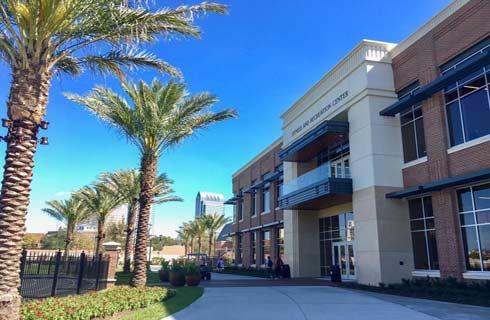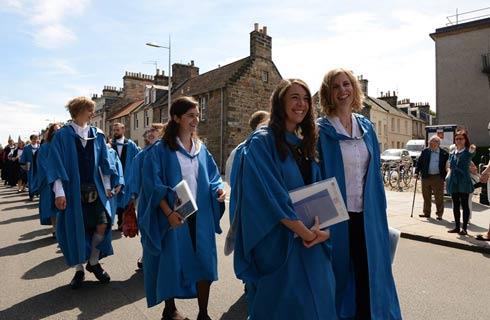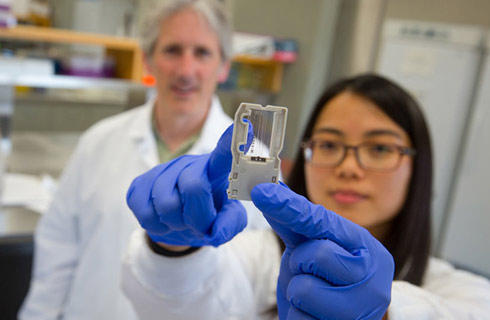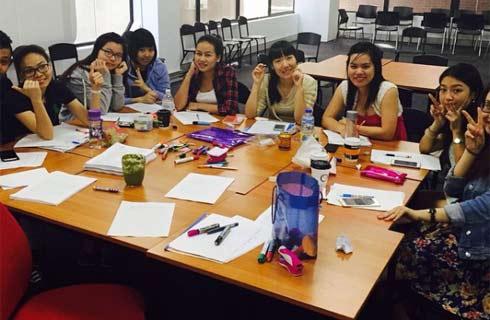国际学生入学条件
Students must have a postsecondary institution attended (including work done at any school of Harvard University) showing all undergraduate work are required.
English Language Scores:
TOEFL (computer-based exam): 100 or higher
TOEFL (paper-based exam): 68 or higher
IELTS: 7.5
Application Deadline: January 8.
IDP—雅思考试联合主办方

雅思考试总分
7.5
- 雅思总分:7.5
- 托福网考总分:100
- 托福笔试总分:160
- 其他语言考试:NA
CRICOS代码:
申请截止日期: 请与IDP联系 以获取详细信息。
课程简介
The three-year, full-time master of divinity (MDiv) program consists of rigorous intellectual scholarship combined with real-world experience, in settings such as churches, synagogues, mosques, hospitals, shelters, and other institutions of care. Students study their own faith tradition (and many others) alongside students from different traditions and backgrounds. Students who consider themselves 'spiritual but not religious, atheist, agnostic, or have embarked on their own spiritual formation, are a welcome and large segment of the HDS master of divinity cohort.<br><br>Students graduating with a master of divinity leave HDS with knowledge and experience that prepare them to serve within a religious community, to explore spiritually formative intellectual work, to evaluate and act on the needs and questions of religious and other communities, and to speak with both a pastoral and a public voice in many different settings.<br><br>The MDiv program includes:<br><br>Rigorous education in the religious traditions that shape the scholarly, spiritual, and practical dimensions of a vocation to ministry<br><br>The capacity to use the fundamental intellectual tools of the study of religion<br><br>Genuine reading competence in a scriptural language and/or a language of theological scholarship that allows for the lifelong use of that language in ministerial leadership and scholarly inquiry<br><br>Education in the arts of ministry pursued in both the classroom and the field<br><br>Significant learning in a religious tradition other than one's own<br><br>Cultivation of the intellectual, spiritual, and pastoral agility that will enable graduates to move with skill, confidence, generosity, and grace across the complex and diverse religious, cultural, and moral spheres of modern society.
相关申请
 预科
预科 奖学金
奖学金 实习机会
实习机会 在校学习
在校学习 跨境学习
跨境学习 校园授课-线上开始
校园授课-线上开始 在线/远程学习
在线/远程学习
开学时间&学费
学费信息仅供参考,请与IDP联系以获取详细信息
| 开学时间 | 时长 | 学费 | 地点 |
|---|
学校排名

世界排名6
数据源:
泰晤士高等教育世界大学排名
关于哈佛大学

先后诞生了八位美国总统,40位诺贝尔奖得主和30位普利策奖得主。哈佛大学商学院案例教学盛名远播。这里也培养了缔造了微软、IBM、Facebook等一个个商业奇迹的人。哈佛大学教学资源之丰富令人咋舌。哈佛大学拥有70个独立图书馆,3000英亩森林研究站,12座教学用博物馆,占地265英亩的植物园,哈佛大学有24座科学研究专用校舍,多个剧院和舞台,41支体育团队,450个学生社团……除此之外,你还能够跨界注册哈佛研究生院与职业学院,甚至邻居麻省理工的课程! 满足哈佛大学本科录取要求的学生SAT Math部分平均成绩在710到790之间;Verbal部分平均得分在700-800之间;平均SAT总分(Combined)为2225,比全美其它各大学的录取平均SAT成绩高出了41.3%。每年约有70%的学生能够获得奖学金,且申请奖学金不会影响申请者被录取的几率。
本校相关课程

公共卫生博士
学历文凭
Ph.D.
开学日期
课程费用总额


公共卫生硕士(45学分)
学历文凭
Masters Degree
开学日期
课程费用总额


工商管理硕士/医学博士
学历文凭
Combined Graduate / Doctoral Degree
开学日期
课程费用总额


法学博士/国际发展公共管理硕士
学历文凭
Combined Graduate / Doctoral Degree
开学日期
课程费用总额


法学硕士
学历文凭
Masters Degree
开学日期
课程费用总额


法学博士
学历文凭
Juris Doctor
开学日期
课程费用总额

其他相关课程

Bachelor of Arts in Catholic Studies
 曼尼托巴大学
曼尼托巴大学学历文凭
Bachelor Degree
开学日期
课程费用总额


神学硕士
 哈佛大学
哈佛大学泰晤士高等教育世界大学排名:5
学历文凭
Masters Degree
开学日期
课程费用总额


宗教教育哲学博士
 福特汉姆大学
福特汉姆大学学历文凭
Ph.D.
开学日期
课程费用总额


宗教教育文学硕士-成人,家庭和社区
 福特汉姆大学
福特汉姆大学学历文凭
Masters Degree
开学日期
课程费用总额


中学天主教宗教教育学士学位
 代顿大学
代顿大学学历文凭
Bachelor Degree
开学日期
课程费用总额


Master of Arts in Religious Education
 杜肯大学
杜肯大学学历文凭
Masters Degree
开学日期
课程费用总额















